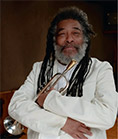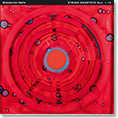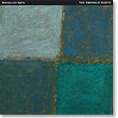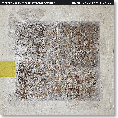JOHN TCHICAI, REGGIE WORKMAN AND ANDREW CYRILLE
"Don´t do deep meditation to this music - that would be counterproductive to the aural activity," writes John Tchicai. "There´s nothing cryptic about it," says Andrew Cyrille of the music. Reggie Workman would agree, if you could reach him on the go between classes and gigs, I bet, and come up with something like, "The music is the music - what do you think it is?"
So what do you want to know about Witch´s Scream?
That it is far from a fearsome thing but rather a complete listening pleasure, a treasure, an aural entertainment, a sonic enhancement, an enriching audio experience offered by three intensely simpatico musicians who collaborate by sharing their personal wisdom in the most interesting and inviting ways? That Witch´s Scream is the long-anticipated realization of a project first proposed by Tchicai for another record company (Silkheart) in a decade perhaps not yet quite so far away or long ago (the 1980s), now at last concretized as a summit meeting of masters whose richly refined sensibility is utterly accessible to all?
That the repertoire itself has something for everybody - Monk classics, challenging originals, Hollywood novelties, provocative unfettered improvisations? That the moods are mostly playful - "When I'm in a good mood, I start to sing!" Tchicai admits - though on "Witch's Scream" (aka "Heksehyl"), the title track at the album's climax, he blasts loose in his bass clarinet´s lowest register, drawing Workman and Cyrille as well as all listeners within earshot into his vortex, whisking us away then setting us down easy?
There´s nothing I can tell you that you can´t hear yourself. The Tchicai-Workman-Cyrille trio is obviously and inarguably genuine, elegant yet grounded in the matters of daily life, distinguished yet confident beyond any need to project pretense that could stand in the way of the music leading to a good time. There is much that is colleagial, convivial, familial, fraternal here. Nothing smug, though.
These are men who were present at the revolution, players in the early 1960s when jazz broke free from the running of common chords over worn rhythms of stale convention, encouraging each individual to express his or her inner song. Tchicai, Workman and Cyrille, having worked so closely with prophets of that movement, including Albert Ayler, Don Cherry, John Coltrane and Mary Lou Williams, and survivors of the era, including Roswell Rudd, Archie Shepp and Cecil Taylor, acknowledge the costs, as well as the benefits, of that breakaway. Taking responsibility for - nay, embracing and celebrating - the compound complexities of even our most folksy and least fussy musical evocations - that´s one big idea the music of the 1960s promoted. Tchicai, Workman and Cyrille were early activists of the generation that emphasized the deliberateness of the jazz art and demanded the same options and respect that practitioners of other art forms assumed, proclaimed, enjoyed.
Amazingly, this was the first musical collaboration of the three although Tchicai has frequently performed and recorded with Workman, starting with their work some 40 years ago in the fabled New York Art Quartet, and has performed with Cyrille on various occasions. Workman and Cyrille have teamed up often, and see each other in the halls of New York´s New School University, where they both teach at the New School for Jazz and Contemporary Music. The three were destined to come together. Finally, the right time!
Today, Tchicai, Workman and Cyrille are absolutely free to abjure empty flash and noisesome thunder for honest fun, subtle nuance and substantial affect. They are still conscientiously exploratory, yes, pursuing the quirky but true paths of melody, harmony, rhythm, delighting in the twists and turns. They start from a modest standpoint, seemingly loose though acutely sensitive and eagerly responsive. You'd think they were more than naturally intuitive.
They seem rather avuncular, like comforting yet casual intimates who have no agenda other than to entertain, perhaps enlighten and - if it just so happens - enspirit. Witch´s Scream beguiles from the simple hop, skip and jump of its initial tunefulness, then, as you follow gladly, sweeps you off to extraordinary involvement in the spells cast by music and triangulated play. You need only relax, you need do nothing else, to be so transported. Witch´s Scream just happens. We can simply be pleased, and on second thought astonished, that it has.
New York City, January 3, 2006
Howard Mandel







